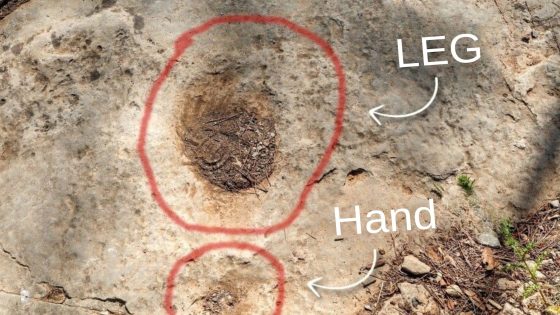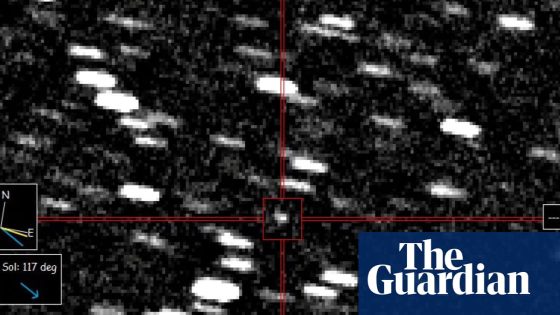In a groundbreaking discovery, scientists have uncovered fossilized dinosaur tracks in southern France, marking the first confirmed evidence of such footprints in the Bouches-Du-Rhône department. This exciting find, dating back to the Late Cretaceous period, highlights the region’s rich paleontological history, which has long been known for its dinosaur eggs found nearby.
- First dinosaur tracks discovered in southern France
- Tracks belong to herbivorous dinosaur Rhabdodon
- Discovery traced back to 2018 hiker's photo
- Well-preserved prints suggest quadrupedal locomotion
- Expands Rhabdodon distribution in the region
- Enhances southern France's paleontological significance
The tracks, estimated to be around 80 million years old, belong to a herbivorous dinosaur of the genus Rhabdodon. This species could reach lengths of three to four meters, providing crucial insights into the behavior and movement of these ancient creatures. The discovery traces back to a hiker’s photograph from 2018, which led scientists on a quest that ultimately revealed these remarkable fossilized imprints.
This discovery raises intriguing questions about the distribution of dinosaur species in southern France. How do these tracks contribute to our understanding of Rhabdodon’s habitat and behavior? The well-preserved nature of the imprints allows researchers to analyze various aspects of locomotion and physical characteristics. Key points include:
- The tracks are the first of their kind documented in the region.
- Both foot and hand impressions suggest quadrupedal movement.
- The finding expands the known range of Rhabdodon.
- It strengthens the significance of southern France in Late Cretaceous paleontology.
As scientists continue to investigate these tracks, the implications for our understanding of dinosaur behavior and distribution are profound. Future research may uncover even more about the rich history of life in this area.

































